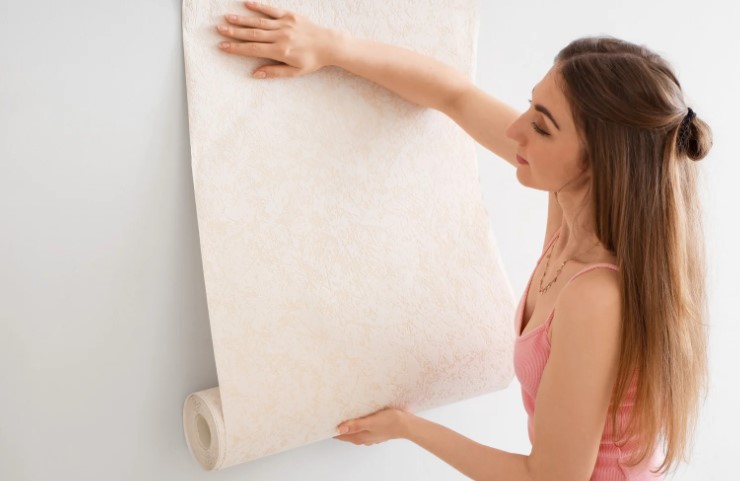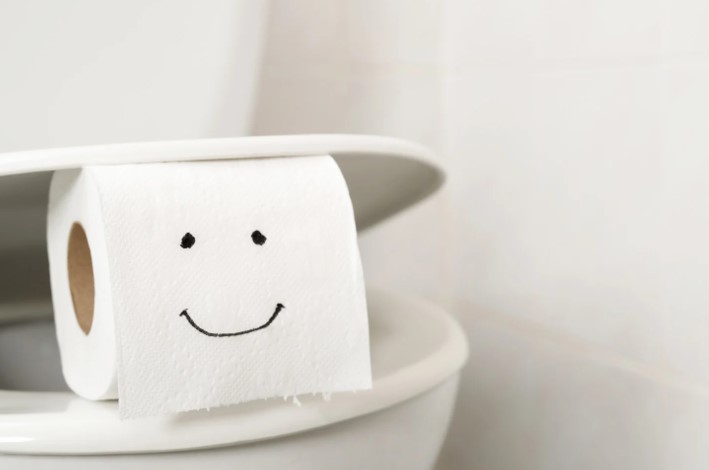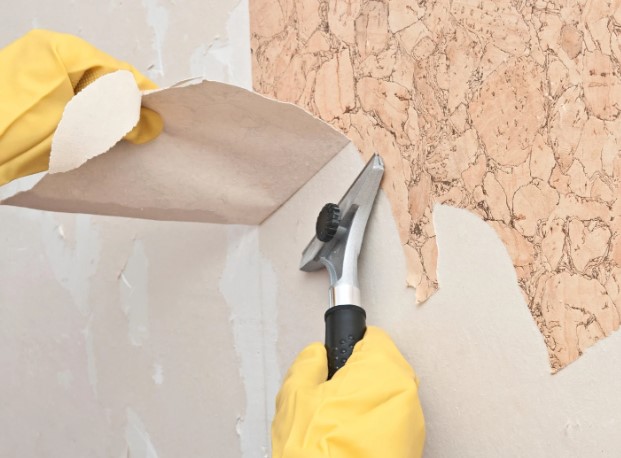- Why I Asked: Can You Flush Wallpaper Paste Down the Toilet?
- What Is Wallpaper Paste Made Of?
- Can You Flush Wallpaper Paste Down the Toilet – Really?
- What’s the Right Way to Dispose of Wallpaper Paste in the UK?
- What I Do with Leftover Wallpaper Paste?
- Disposal Methods Compared
- Conclusion: Here’s What I Learned the Hard Way
- FAQs on Disposing Wallpaper Paste
When I was redecorating my hallway, I found myself standing over a bucket of leftover wallpaper paste wondering: can you flush wallpaper paste down the toilet?
It seemed water-based, and it looked thin enough. But I hesitated—and I’m glad I did.
Here’s what I found out.
Why I Asked: Can You Flush Wallpaper Paste Down the Toilet?
At first glance, wallpaper paste looks harmless. It might be gloopy, yes, but it does dissolve in water, right?
That’s what I assumed too. Like many others, I figured if it mixes with water, it must be okay for the drains.
But I’ve learned the hard way that water-soluble doesn’t always mean drain-safe.
What Is Wallpaper Paste Made Of?
Wallpaper pastes are mostly made from modified starch, methylcellulose, or synthetic polymers. These ingredients help the paste become sticky when mixed with water.
Even if the packaging says it’s biodegradable or water-soluble, that doesn’t mean it will dissolve completely in your plumbing.
Instead, it can cling to the inside of your pipes, slow the flow, and catch other debris.

Can You Flush Wallpaper Paste Down the Toilet – Really?
After doing my research (and speaking to a plumber), the answer is clear: No, you should not flush wallpaper paste down the toilet.
Here’s why:
- It can thicken inside the pipes, especially if poured in large quantities.
- Over time, it builds up, attracting dust, hair, and other bits—leading to clogs and causes smell in bathroom.
- It’s not safe for septic tanks or shared sewage systems.
So while it may go down the toilet initially, it’s what happens further along the system that becomes a problem—and possibly a costly one.
What’s the Right Way to Dispose of Wallpaper Paste in the UK?
According to local council guidelines and waste experts, the safest method to dispose of wallpaper paste is simple: let it dry and bin it.
If you’ve got a small amount left, pour it into a cardboard box or container lined with newspaper and leave it to harden.
Once it’s solid, you can throw it away in your regular household rubbish.
For larger amounts, I’ve taken it to a household waste and recycling centre. They usually have clear instructions for disposing of DIY materials safely.

What I Do with Leftover Wallpaper Paste?
These days, I try to mix only what I need. But when I do have leftovers:
- I let the wallpaper paste dry out in a tub, then scrape it into the bin.
- I avoid pouring it down any drain—even a small amount.
- Occasionally, I share leftovers with a neighbour if they’re decorating too.
Not only does this prevent plumbing issues, but it also cuts down on unnecessary waste.
Disposal Methods Compared
| Method | Is It Safe? | Plumbing Risk | Environmental Impact |
| Flushing down the toilet | No | High | Negative |
| Pouring down sink drain | No | Moderate to High | Negative |
| Bin disposal (dried paste) | Yes | None | Low |
| Council hazardous waste centre | Yes | None | Safest option |
Conclusion: Here’s What I Learned the Hard Way
Trying to take the easy route by flushing wallpaper paste might seem harmless—but it’s not worth the risk. I’ve learned to:
- Always check local disposal guidelines
- Avoid flushing or draining paste
- Plan better to avoid waste in the first place
It’s a small habit that can save a lot of hassle—and money—down the line.
Related Article: How To Remove Brown Stains From Toilet Bowl?
FAQs on Disposing Wallpaper Paste
1. Can I dilute it and pour it down the drain?
Even diluted, it can still gum up the pipes. Best to avoid.
2. What if it’s already dried up?
If it’s dry as well as solid, then it is safe to put in the general waste bin.
3. Are eco-pastes any better?
Some are better for the environment—but not necessarily for your pipes. Still best to dispose of them carefully.



0 Comments